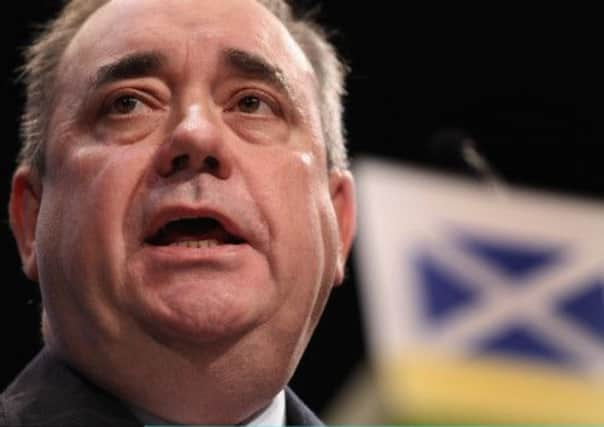Scottish independence: SNP pound freedom warning


The council – which represents business and government agencies on economic growth – concludes in a new paper that London could be expected to limit Scotland’s room for manoeuvre.
The SNP plans to keep the pound after independence. It argues that the UK would want Scotland to stick with sterling and that the country would have “full fiscal freedom” to act as it pleases.
Advertisement
Hide AdAdvertisement
Hide AdBut the SCDI says London could be expected to raise concerns about one specific SNP plan, to slash corporation tax below that in England.
The agency also contradicts a claim by Alex Salmond on borrowing costs. The First Minister said borrowing costs would be no higher than the UK’s, but the SCDI says they are initially likely to be higher.
The SCDI, one of the country’s most respected public bodies on the economy, has now published its view in a major paper on the implications of the plans.
The paper agrees with ministers that the plan to keep Scotland within a sterling zone would “minimise economic disruption”. However, it says the picture after that is complicated by the potential policy position in London.
“An independent Scottish Government would have scope to use fiscal levers, but an rUK [rest of the UK] government may seek in negotiations on the currency to limit its flexibility over spending and borrowing, while the Bank of England may set an interest rate for the rUK and not for an independent Scotland,” it declares.
The paper also says that, in those negotiations, “it is possible that the rUK may seek to limit an independent Scottish Government’s flexibility in fiscal policy, particularly if it was concerned about the fiscal stability of a sterling zone, and about cross-border competition for investment and the potential reduction of its tax revenues.”
Mr Salmond has said he would like to cut corporation tax to give Scottish firms a competitive edge. The SCDI says it is “likely” that this would also form part of those negotiations.
Both the UK and the EU, the paper declares, would be concerned that lower rates in Scotland “would shift activity from other regions, particularly the north of England”.
The paper also agrees with the analysis of several economists who have already argued that borrowing costs after independence may be higher, at least to begin with.